Scientist Rediscovers Ancient Indian Pesticide, Helps 100s of Farmers Improve Soil
Renowned agricultural scientist, the founder of the Asian Agri-History Foundation (AAHF), Late Dr Y L Nene rediscovered the ingredients to the ‘natural pesticide’, Herbal Kunapajala that helps farmers even today.
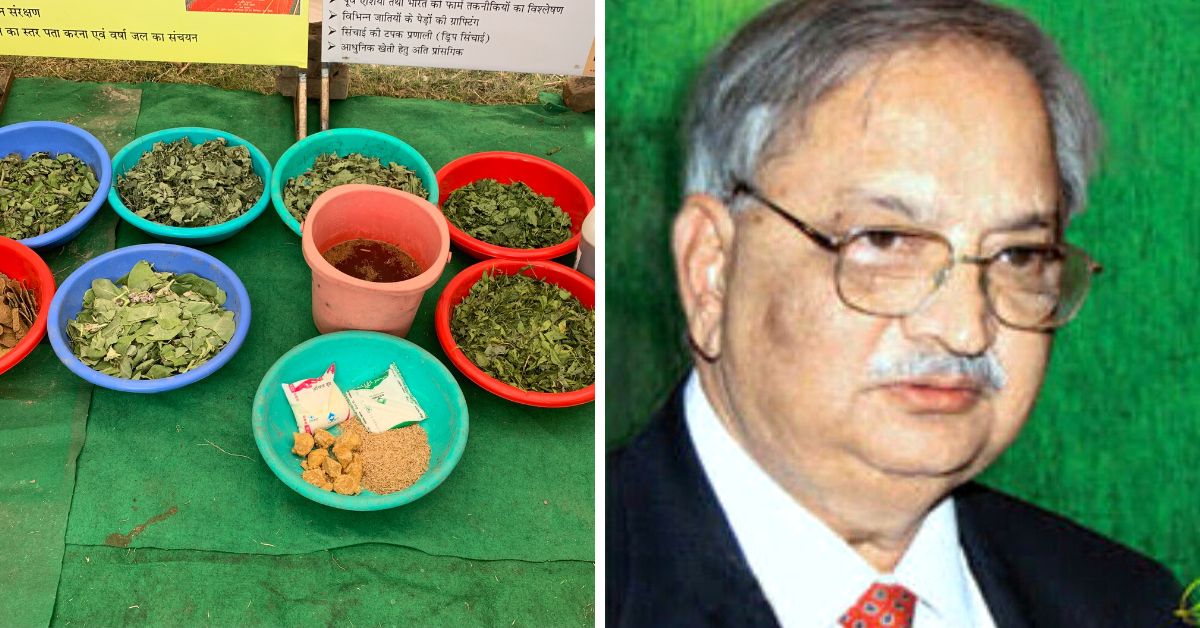
Described in an ancient treatise Vrikshayurveda (The Science of Plant Life) by Surpala in Bundelkhand Central India about 1,000 years ago as a ‘natural pesticide’ made from fish and animal waste, Kunapajala is a miracle organic fertiliser.
It is said to increase soil fertility, eliminate stubborn pests that survive even with chemical fertilisers, and removes pesticide residue within a few years.
And the man behind it all was a renowned agricultural scientist, the founder and chairman of the Asian Agri-History Foundation (AAHF) —Late Dr Y L Nene.
He obtained a copy of the Vrikshayurveda manuscript from Bodleian Library of Oxford University, UK, and got it translated from Sanskrit into English and printed through AAHF in 1996.
“We find the reference for Kunapajala from 400 BC to 1725 AD in literature being practised by farmers and taught in the Gurukuls,” shares Dr Sunita T Pandey Professor of Agronomy and Executive Secretary of AAHF, College of Agriculture GBPUA&T, Pantnagar. “Even today some farmers are using the original recipe, however, some hesitate to use the animal remains,” she adds.
So, Late Dr Nene came up with the vegetarian version of the original formula using cow dung and cow urine but retaining the other ingredients used by Surpala. In 2012, he came up with a new version with a herbal base for the fertilizer and called it Herbal Kunapajala.
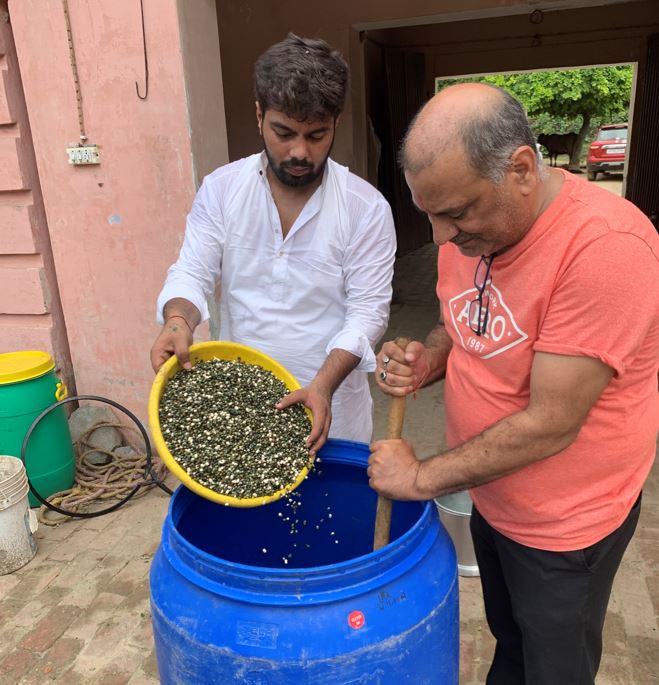
It follows the same process, substituting the animal remains with vegetation with a different constitution but based on the same principle. The fermentation process breaks down the complex proteins and fats into smaller units which enhance the assimilation of nutrients by plants making them healthy and hardy.
The main ingredients in Herbal Kunapajala are cow dung and urine, jaggery, germinated whole black gram, mustard or neem oil cake, rice husk water, finely chopped field weeds, and water in prescribed proportions. It takes around 15 days in summer and 30-45 days in winter for Herbal Kunapajala to be ready.
This multipurpose, fully-fermented bioformulation supports excellent plant growth, increases yields, and protects plants from major biotic stresses (diseases and insect/pests). It serves as an eco-friendly nutrient, water, disease, and soil health management system.
Farmers have obtained remarkable results by drenching and spraying Herbal Kunapajala on crops and trees. It has increased the yields, provided natural pest control, and improved the soil quality.
Vijay Parmar, Senior Tea Advisor, Darjeeling, and Dooars, areas has been creating awareness about this method among tea planters, and currently, two-thirds of Darjeeling and Dooars’ tea gardens in Northern West Bengal have been converted into organic tea farming based on Kunapajala and other preparations from Vrikshayurveda.
In Uttarakhand, about 25 farmers use Kunapajala for different crops. Hundreds of small farmers in Kerala are following this Vrikshayurveda way of farming. In Madhya Pradesh, Maharashtra, Rajasthan, and UP around 100 farmers are using Kunapajala.
Better yields and healthier crops
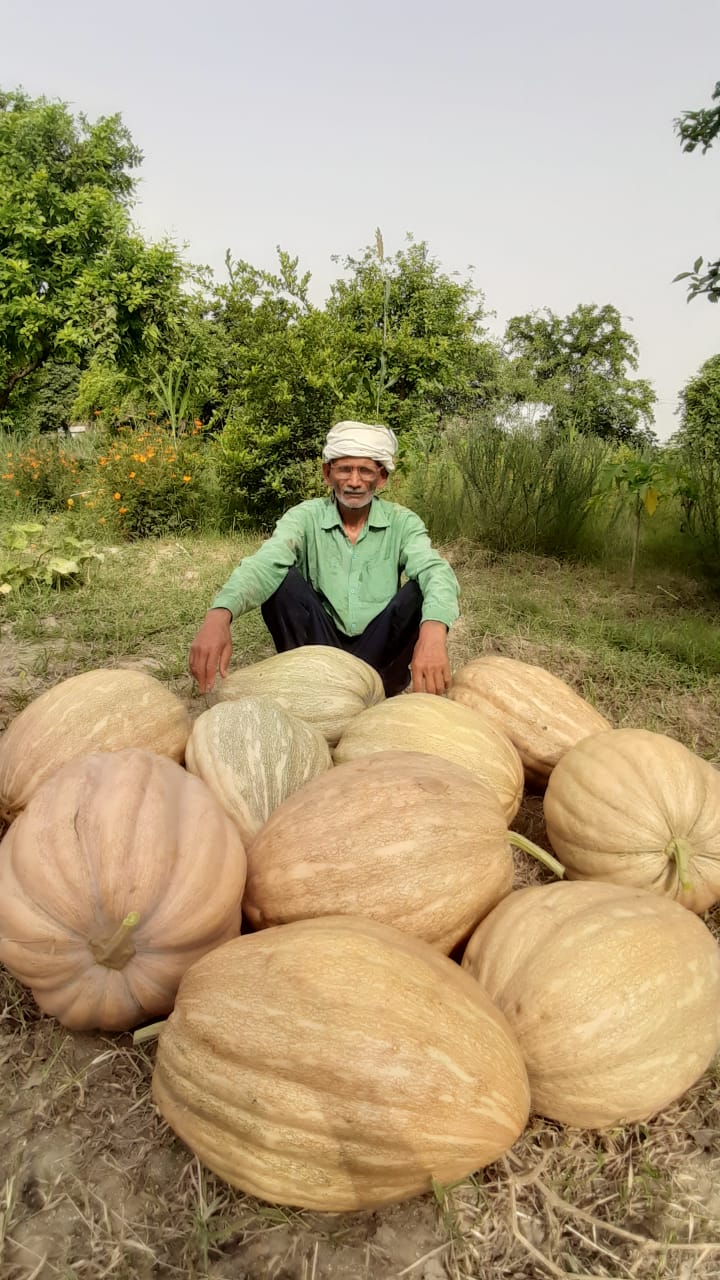
Pramod Gunwant, a smallholder farmer from the village Simrad (Ramgarh block of Nainital district), has been using it in different crops on his farm for the last two years. He obtained a fantastic yield increase from his 8-year-old kiwi plant; instead of 10-12 kg of kiwi fruit, he harvested 100 kg of healthy fruits in 2020 — a phenomenal increase and obtained a similar quantity of fruits in 2021.
In the spring of 2019, Gunwant’s peach plants were affected by the leaf curl disease caused by a fungus that curls the emerging leaves and impacts the yield drastically.
As a result, he had harvested only a few kilograms of peaches. In the fall of 2019 and early spring of 2020, he applied Herbal Kunapajala to these plants through soil drenching and again sprayed these plants in the early spring with it a couple of times followed by a couple of foliar sprays. He obtained excellent control of the leaf curl disease in peach plants with an amazing yield increase in his 40 peach plants by harvesting 60 wooden boxes (12-13 kg/box) in 2020 and 2021. He is also using this for other crops like tomato, capsicum, and other vegetables successfully reducing the cost of inputs by eliminating the use of chemical fertilizers, pesticides and micronutrients.
Another farmer, Raghubir Singh from village Shikohabad, Uttar Pradesh, was using vermicompost, avoiding chemical fertilizers for some years. That’s when he learnt about Herbal Kunapajala at a workshop on Vrikshayurveda in October 2019.
Now he is using Herbal Kunapajala for every crop since then and has obtained wonderful results. “The sugarcane that was about 10 feet in length last year and 12-14 feet this year. It is a very healthy crop,” shares Singh happily. He considers Herbal Kunapajala a blessing for farmers, especially small farmers who find organic farming expensive. He has stopped using DAP/ Urea and has been using only Herbal Kunapajala for the last 3 years.
“The ingredients required for Herbal Kunapajala are easily available on farms,” says Dr Pandey. “The spraying of Herbal Kunapajala doesn’t kill the insects,” she explains, “but it prevents the insects from attacking the crop, affecting insects in subtle ways so that their population dwindles slowly leaving the crop to flourish.”
This results in a healthy growth without infection. Singh advises farmers to start on a small scale. The making of Herbal Kunapajala should be an ongoing process so that you have it always ready for your requirements, he shares.
Vrikshayurveda, a vast repository of knowledge distinctly mentions the type of vegetation to be used for different issues. The recipe for both original and Herbal Kunapajala offers immense flexibility and liberty to farmers. It can be customised for any region to address specific issues. The composition depends on regional vegetation, the flora and crops, and the prevalent diseases and issues, explains Dr Pandey.
However, wisdom and in-depth knowledge are critical to the selection of appropriate vegetation to add according to the region-specific requirements, she explains.
Small and marginal farmers can grow their crops organically by using only Herbal Kunapajala eliminating the need for additional organic manures or bio-pesticides. Farmers in MP, Kerala, and Uttarakhand are already benefitting from its use.
As it contributes to low-input farming and increased net profits and sustainability, the small farmers have been able to reduce their cost of cultivation and ensure good productivity and significantly increased their net profits in different crops ranging from 0.25 to 5 times (i.e., 25 to 500 per cent), shares, Dr SPS Beniwal, Chairman of AAHF. He cites examples of rice crops, vegetables (tomato, brinjal, cucurbits, etc), and fruit crops (peach and kiwi). In fact, farmers obtained five times increase in fruit productivity in peach plants whereas 10 times yield increase in a 10-year-old kiwi plant.
AAHF encouraged the use of Herbal Kunapajala among the tea growers in Darjeeling, West Bengal, since 2008 and to marginal farmers in Uttarakhand and western Uttar Pradesh since 2019 in collaboration with GBPUA&T through demonstrations on the preparation of Herbal Kunapajala. They also created WhatsApp groups for farmers, a Vrikshayurveda newsletter, lectures and organised farm visits, says Dr Beniwal.
“This wonderful product happens to be the world’s first bio-fertilizer and deserves to be promoted,” he adds.
Ingredients and procedure to make it:
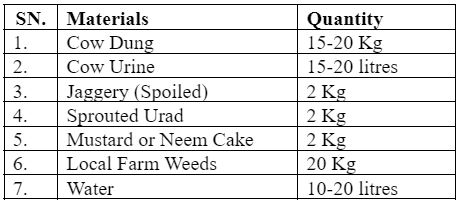
- In a 200-litre plastic drum with a lid add cow dung and urine and mix.
- Add mustard/neem cake, sprouted urad and crushed jaggery and mix.
- Add 10-20 litres of water and mix it well with a wooden stick.
- Add crushed local farm weeds, medicinal plants, and neem leaves.
- For prevention of fungal diseases add finely chopped leaves and fine twigs of Aak (Madar/ Calotropis gigantea), Castor bean and Jamun (Black plum) plants
- Boil paddy husk in water in a large vessel for 15-20 minutes, cool it for two days and then add it into the drum.
- Add 1-1 litres of milk or 5-7 days old whey (buttermilk).
- The total volume of water in the drum should be 150 litres. Cover the drum with a tight lid. Mix the contents daily, morning and evening for about 15 days in summers and 30-45 days in winters. When the formation of bubbles stops the mixture is ready. Filter it with a cloth and use it. It needs to be filtered through a cloth twice if it is to be used as sprays.
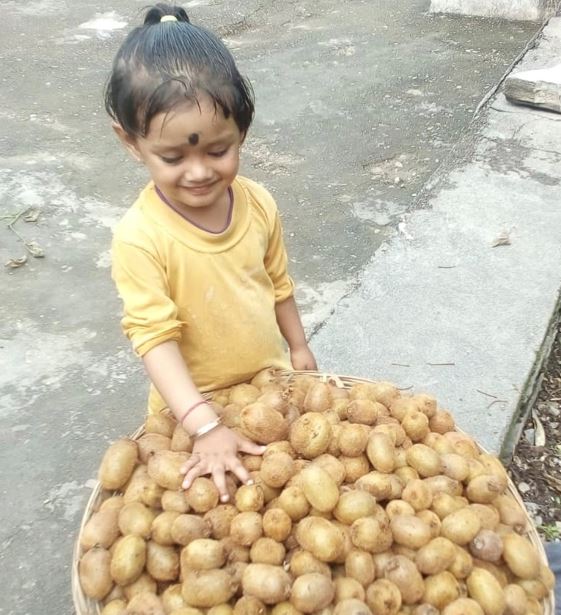
Written by Nupur Roopa; Edited by Yoshita Rao
If you found our stories insightful, informative, or even just enjoyable, we invite you to consider making a voluntary payment to support the work we do at The Better India. Your contribution helps us continue producing quality content that educates, inspires, and drives positive change.
Choose one of the payment options below for your contribution-
By paying for the stories you value, you directly contribute to sustaining our efforts focused on making a difference in the world. Together, let’s ensure that impactful stories continue to be told and shared, enriching lives and communities alike.
Thank you for your support. Here are some frequently asked questions you might find helpful to know why you are contributing?


This story made me
- 97
- 121
- 89
- 167











